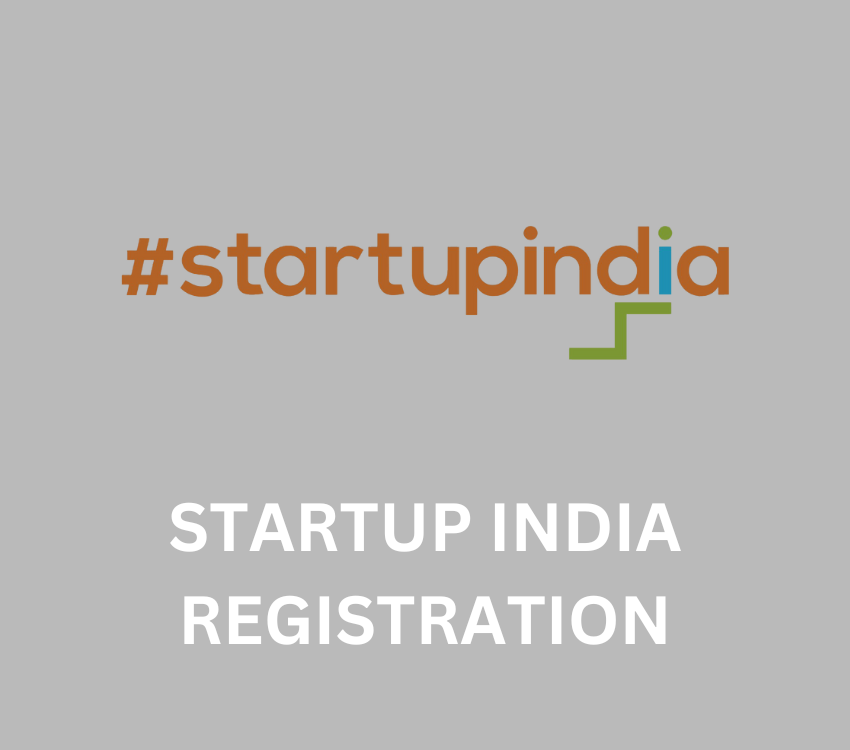Are you ready to launch your startup in India? The Startup India initiative, a flagship program by the Indian Government, is designed to empower and support entrepreneurs like you. By obtaining Startup India Registration, you can access many benefits, including tax exemptions, simplified compliance processes, and various funding opportunities. This registration not only establishes your business legally but also connects you to a robust network of resources and support systems, helping you scale and succeed in a competitive market.
BrainCave Consultancy Service is here to assist you with a quick and efficient Startup India registration process, enabling you to embark on your journey toward success.
Join the ever-growing community of successful entrepreneurs by registering with Startup India today!
Startup India Scheme
Startup India is an initiative by the Indian Government designed to boost the growth and development of startups across the country. Launched in 2016, the primary aim of the Startup India scheme is to cultivate a thriving startup ecosystem, positioning India as a global leader in innovation. By obtaining startup registration in India, startups gain access to myriad benefits.
DPIIT Registration for Startups
Under the Startup India scheme, eligible companies can be recognized as Startups by the Department for Promotion of Industry and Internal Trade (DPIIT), which is part of the Ministry of Commerce and Industry, Government of India. When a startup obtains DPIIT recognition, it becomes eligible for a range of benefits outlined under the Startup India scheme.
Eligibility Criteria for Startup India Registration
To register a startup in India and become eligible for DPIIT registration and benefits from Startup India, a startup must meet the following criteria:
- Business Structure: The startup must be incorporated as a private limited company, a limited liability partnership (LLP), or a partnership firm.
- Age of the Startup: The startup should be at most ten years from its incorporation. However, startups in the biotechnology sector are allowed up to 15 years.
- Annual Revenue: The startup's yearly turnover must not exceed INR 100 crores in any fiscal year since its inception.
- Innovative Approach: The startup must aim to innovate, develop, deploy, or commercialize new products, processes, or services driven by technology or intellectual property.
- DPIIT Recognition: The startup must acquire a startup India certificate from the Department for Promotion of Industry and Internal Trade (DPIIT).
- Legal Compliance: The startup must comply with all relevant legal requirements, such as the Companies Act, Income Tax Act, and Goods and Services Tax Act. Additionally, it must maintain a bank account in the business's name and provide these details during DPIIT registration.
- Job Creation: The startup should either contribute to job creation or have the potential to do so in the future, aligning with the Startup India scheme’s objective to stimulate employment within the country.
Benefits Provided under the Startup India Scheme
Startup India Company Registration offers an extensive range of benefits to support startups, as outlined below:
- Patents, Trademarks, and Design Registration:
Startups that need to secure patents for innovations or trademarks for their business can access facilitators from a government-approved list. By engaging these facilitators, startups benefit from an 80% reduction in fees, covering only the statutory charges. - Funding Support:
Many startups face challenges in accessing finance due to their lack of experience, absence of security, or insufficient cash flows, which often pose a high risk for potential investors. To mitigate this, the government has set up a fund with an initial corpus of Rs. 2,500 crore, aiming for a total of Rs. 10,000 crore over four years. This fund, functioning as a Fund of Funds, invests in the capital of SEBI-registered venture funds, thus providing indirect financial support to startups. - Self-certification under Employment and Labour Laws:
Startups can self-certify compliance under specific labour and environmental laws, reducing the compliance burden and associated costs. This allows startups to self-certify under six labour laws and three environmental laws for three to five years post-incorporation. - Environment-Related Acts Exemption:
Startups in the thirty-six industries categorized as 'white' by the Central Pollution Control Board are exempt from certain environmental clearances under three specific acts for up to three years. - Tax Exemption:
DPIIT-recognized startups are entitled to an income tax exemption for three consecutive financial years out of their first ten years since incorporation. Moreover, startups can apply for an exemption from angel tax under Section 56 of the Income Tax Act, which is particularly beneficial for early-stage startups receiving external equity investments at valuations exceeding their fair market value. - Streamlined Winding up:
Startups can shut down their operations within 90 days from the date of making the application, providing a hassle-free exit strategy for businesses that need to cease operations. - Relaxed Public Procurement Norms:
Startups recognized by DPIIT are allowed to compete in public procurements without the typical prerequisites of prior turnover and experience requirements. This opens up significant business opportunities with government departments, ministries, and public sector undertakings.
Documents Required for Startup India Registration
To complete the registration of a startup in India and obtain DPIIT recognition for your startup, you will need the following documents:
- Company Incorporation/Registration Certificate
- Proof of Funding: If applicable, evidence of any financial backing received.
- Authorisation Letter: From the company’s authorized representative.
- Proof of Concept: This could be a website link, a pitch deck, or a video demonstrating the startup's concept.
- Patent and Trademark Details: If your startup has filed for any patents or trademarks.
- List of Awards or Certificates: Any recognitions or awards your startup has achieved.
- PAN (Permanent Account Number)
Startup India Registration Process
Here’s a step-by-step guide on how to register your startup with Startup India and obtaining Startup India Certificate:
Incorporate Your Business:
Begin by incorporating your business. You can choose from several structures, such as a Private Limited Company, Partnership Firm, or Limited Liability Partnership (LLP). This involves submitting a registration application along with the necessary documents and fees to the appropriate authority.
- Private Limited Company or LLP: File your registration application with the Registrar of Companies (ROC).
- Partnership Firm: Submit your registration application to the Registrar of Firms.
For both types of registration, you will need to obtain a Certificate of Incorporation or Partnership registration, confirming the legal formation of your business. BrainCave Consultancy Service can help you register your company easily in India.
- Register with Startup India:
Once your business is incorporated, you can register it as a startup on the Startup India website. You'll need to fill out a form on the Startup India portal and upload certain documents, including details of your business structure and a brief about your products/services. Obtain DPIIT Registration:
Once your profile on the Startup India website is set up, the next essential step is to secure recognition from the Department for Promotion of Industry and Internal Trade (DPIIT). As mentioned earlier, DPIIT recognition grants startups numerous advantages.
To apply for DPIIT Recognition, sign in with your registered profile credentials on the Startup India website and navigate to the ‘Apply for DPIIT Recognition’ option located under the ‘Recognition’ tab. On the subsequent page, select either ‘Apply as Company or LLP’ or ‘Apply as Partnership Firm.’
If you choose ‘Apply for Company or LLP,’ you will be directed to the National Single Window System (NSWS) website. Here, companies and LLPs must register and add the ‘Registration as a Startup’ form to begin the DPIIT registration process.
Successfully completing this step will officially recognize your startup under DPIIT, enabling access to the comprehensive benefits and support provided by the Startup India initiative.
- Obtain Your Startup India Recognition Number:
Once you apply for registration, you will immediately receive a DPIIT recognition number. This serves as a preliminary acknowledgment of your application. The official Startup India Certificate of Registration will be issued after the relevant authority thoroughly reviews all your submitted documents. This Startup India certificate is your formal recognition under the Startup India initiative, confirming that your startup meets all the necessary compliance and eligibility criteria.
After receiving the DPIIT certificate, you can apply for various benefits offered under the Startup India scheme, such as tax exemptions (under the Income Tax Act), patent filing, and IPR services. BrainCave Consultancy Service makes this process easier for your new business with reasonable startup India registration fees.
Choose BrainCave Consultancy Service for Your Startup Registration!
Choose BrainCave Consultancy Service for expert support in obtaining your Startup India Certificate. Our team is dedicated to guiding you through every step of the startup India registration process, from company registration to securing your DPIIT certificate. We provide comprehensive assistance to help you meet compliance requirements with affordable startup India registration fees and pave the way for your startup’s success and growth.









